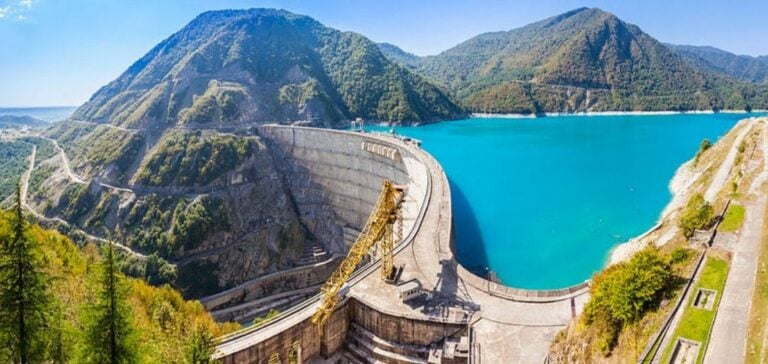Faced with a major incident at the Enguri hydroelectric power station on the border between Abkhazia and Georgia, the Abkhaz authorities have had to increase the hours of power cuts from four to six hours a day. This adjustment follows the suspension of operations at the plant until April 15, after a section of its bypass tunnel was damaged, causing concrete debris to fall into the turbine compartment.
Impact on power generation
Hydropower is the only source of domestically-produced energy in Abkhazia, as the region is heavily dependent on Russian electricity imports. Water levels in the power station are a key factor in the stability of Abkhazia’s electricity supply, particularly during the periods of low river flow between October and April, when the reservoir struggles to meet energy demand.
Energy relations with Russia
Since 2016, Abkhazia has been negotiating electricity purchases with Russia to cover the winter period, but annual purchases have often been insufficient to meet regional demand. In 2023, the Abkhaz energy company Chernomorenergo purchased 40 million rubles ($400,000) worth of energy from Russia, but this was not enough, leading to prolonged power cuts.
Local reactions and future measures
On April 8, Levan Mebonia, Chairman of the Board of Directors of the Enguri power plant, revealed that a private Georgian company was supplying electricity to Abkhazia, a claim that Georgian Economy Minister Levan Davitashvili was unable to confirm. Local residents, affected by electricity price hikes, are also expressing their discontent, with some considering stopping all payments.
The privatization of the Enguri power plant’s differential stations is a subject of debate, with some fearing that it could lead to price rises and the use of the infrastructure in international political negotiations. At the end of 2023, the Abkhazian parliament passed a law prohibiting the privatization of large production facilities, although long-term leasing is not ruled out.






















